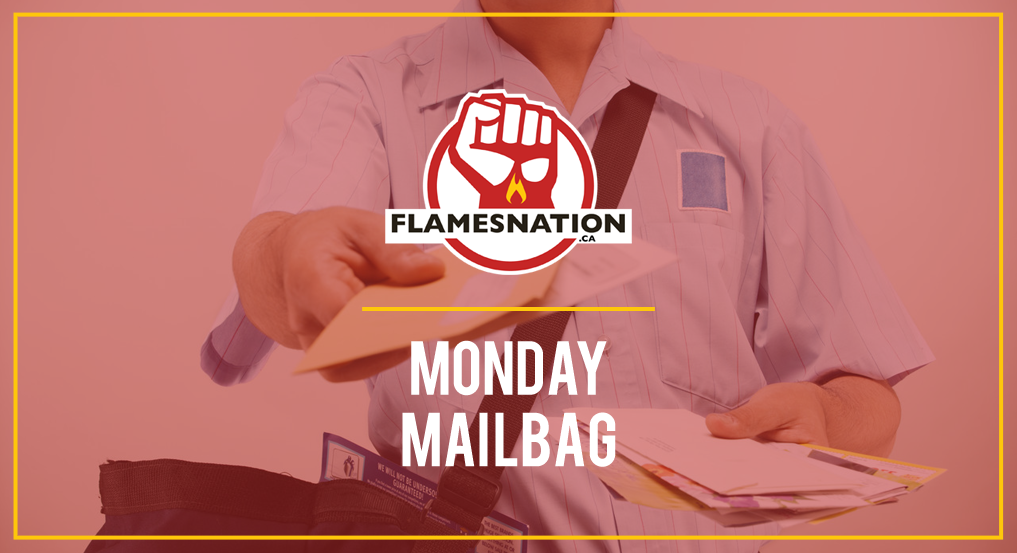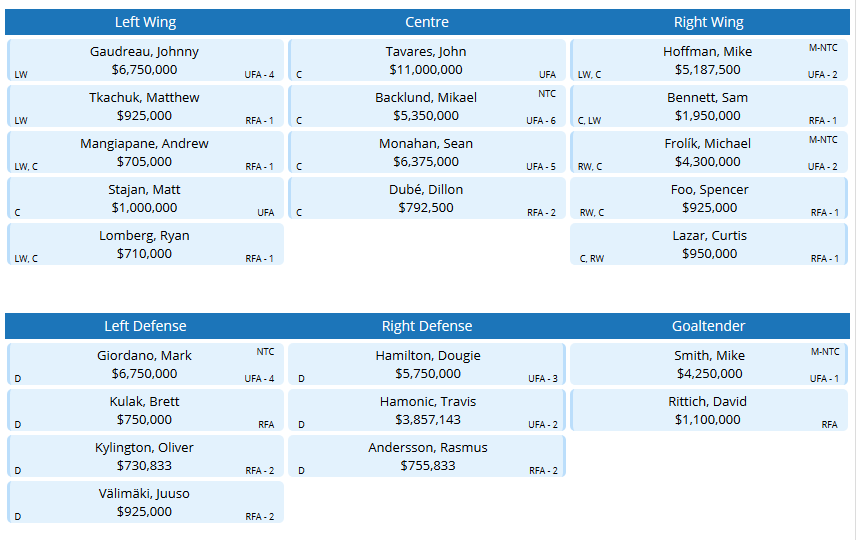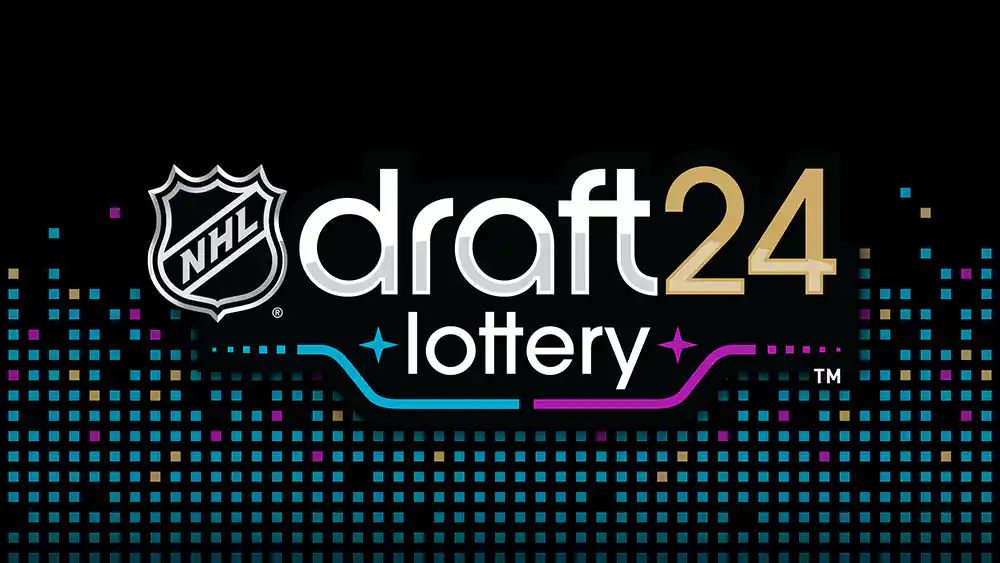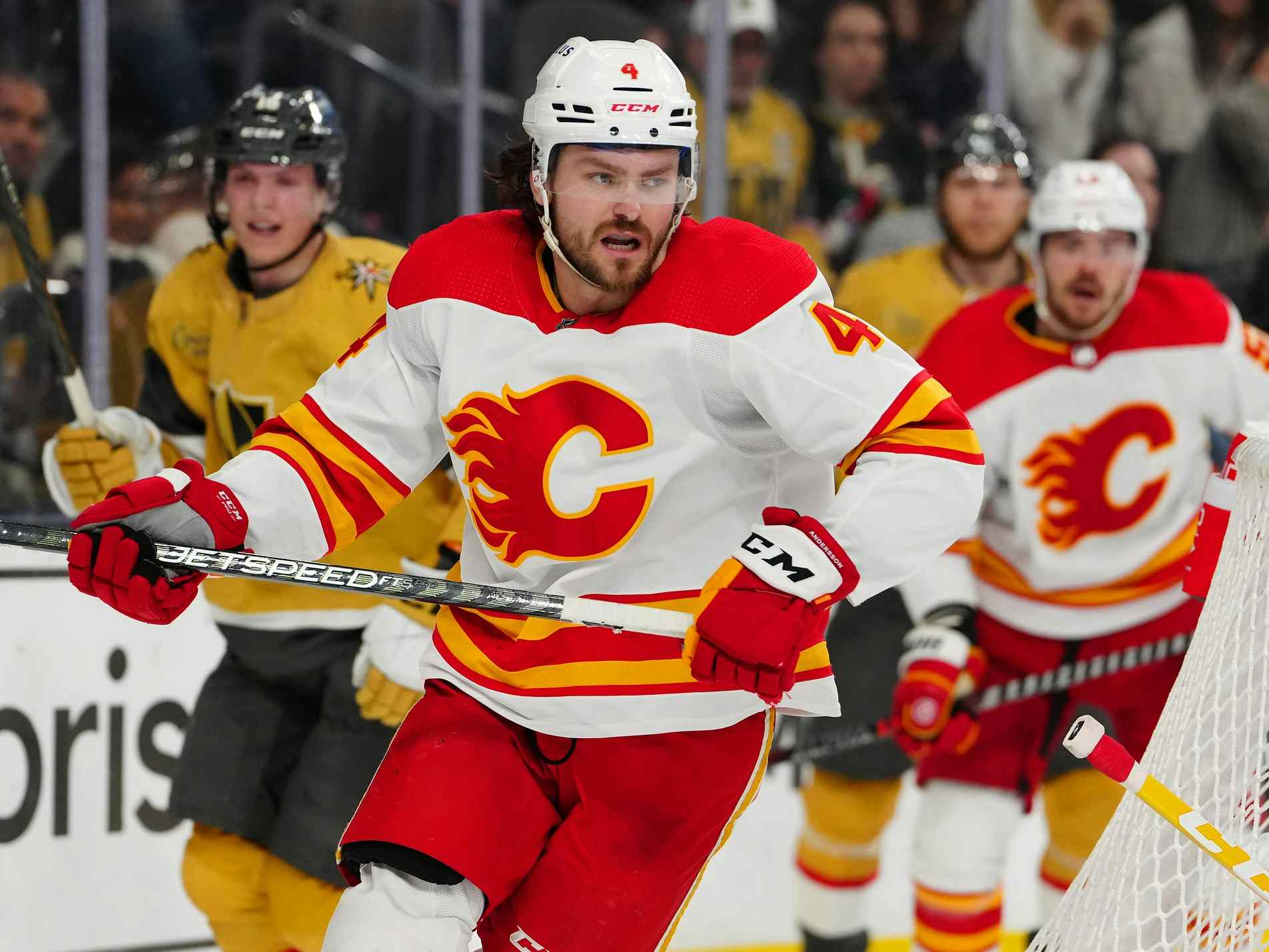FlamesNation Mailbag: Delivering the Bill

Well, it’s only a short matter of time before Bill Peters is (likely) announced head coach of the Calgary Flames. Who is this man? What does he do well? What should we be scared of? That, and other questions, ahead.
Peters has earned a reputation as a defenceman whisperer, especially with regards to younger defencemen. Noah Hanifin, Jaccob Slavin, and Brett Pesce are 21, 23, and 23 respectively, and have quietly broken into the league. The most impressive thing is that they have seen minimal AHL time, the three of them combining for 21 AHL games (Slavin with the most: 14). Perhaps Hanifin is expected to be a stud, as he was a fifth overall pick, but the other two are fourth and third round picks. If this holds true for Calgary, it bodes well for a team that should see Rasmus Andersson, Oliver Kylington, and Juuso Valimaki fight for positions. Justin Faulk has also taken a step towards being a very solid defenceman under Peters, so it’s not just him being in the right place at the right time. Peters’ emphasis on defensive structure seems to be working.
For forwards, the results are more mixed. Sebastian Aho and Teuvo Teravainen have had strong seasons with Peters as their coach. Elias Lindholm seems to have developed into a very handy centreman, but you feel that he was not fully unleashed under Peters (Lindholm was picked right before Monahan in 2013). Victor Rask and Jeff Skinner appear to be stuck in neutral. Peters still got good seasons from them, but there could be more.
I would be very excited for what he could do with the defensive corps. If he can eliminate some of the boneheaded mistakes that we saw last season, perhaps a more talented forward corps can seamlessly reach new heights.
It doesn’t really matter.
If you look at the results from this playoffs, playoff experience seems to have nothing to do with actually winning. Of the five most active experienced playoff coaches (John Quenneville, Ken Hitchcock, Mike Babcock, Alain Vigneault, and Peter Laviolette), two (Q, Hitch) are on the outside looking in, one (Vigneault) no longer has a job, one (Babcock) is fighting to remain in the playoffs, and the other (Laviolette) was fighting off a valiant threat from a coach (Jared Bednar) with six playoff games under his belt, all of them coming this year.
You can find that there is often no correlation between coaching in the playoffs and winning in the playoffs. Mike Sullivan had seven games of playoff experience (in 2003-04) before taking the Penguins to back-to-back Stanley Cups. Guy Boucher is one of the winningest playoff coaches among active coaches but also not someone who comes to mind as a good coach.
I don’t think Peters’ lack of playoff experience is something to be hung up on. Often times, playoff success is more of a reflection of the team than the coach. A rebuilding team that refuses to even get close to the salary cap is likely not one ever destined for playoff success. Bob Hartley won a cup with a team filled to the brim with Hall of Famers. I wouldn’t recommend giving him a call.
I have contradicting opinions on this.
I feel that Peters is going to really put the screws to TJ Brodie. From an eye perspective, Brodie could easily get pulled out of position and then chase people around the defensive zone. If he can reduce the number of times Brodie looks absolutely lost to nearly zero, the Flames could finally have that great defence everyone is pining for.
But I also think that Brodie’s value was heavily inflated playing next to Norris-level Mark Giordano on a team with zero defensive depth. I’m not sure we ever see that Brodie return. He was a great defenceman when you considered that the next men up were either Kris Russell or Dennis Wideman. When there’s actual defensive depth, it’s hard to really make an argument for him to be on the first pairing other than “it worked a few years ago.” I think Glen Gulutzan’s coaching did have an impact on his play, but also that a lot of his flaws were masked by the circumstances. I think he’ll improve under Peters, but not back to what people once saw.
I ran the numbers. Among all teams since 2007-08, the correlation coefficient between 5v5 CF% and 5v5 SH% is -0.17. A negative number, but if you remember stats class well enough, anything between 0 and 0.2 (on either end of +/-) is a weak to nonexistent correlation. If linear regression is your flavour, r^2 = 0.0296. There’s almost no correlation.
Comparing Flames teams under Hartley and Gulutzan is tunnel vision. There’s no trade off between corsi and SH%. The best ever corsi team (2007-08 Red Wings) shot at a mild 7.48%. The worst, the 2014-15 Buffalo Sabres, shot at 7.16%. The 2012-13 Leafs recorded the highest ever SH% with 10.67%, but with a 44.08 CF%. They stand in weird company, as the next best shooting team ever, the 2009-10 Capitals, had a CF of 52.88%. A team with a similar CF, the 2013-14 Buffalo Sabres with a 43.08 CF%, shot at 5.83%.
Shooting percentage fluctuates and doesn’t really pay attention to CF%. It has been demonstrated to be non-repeatable, meaning that you cannot bet on a low or high shooting . percentage forever. They should certainly aim to be a top 10 CF% team. Will that include top 10 SH%? That’s up to random variation.
Let’s talk about another coach for once.
I think Huska is working out. His job, from an organizational standpoint, is not to win AHL games (who in Calgary really cares?) but to develop young prospects and play the kids, and that’s what he’s doing. Players like Brett Kulak, Mark Jankowski, Garnet Hathaway, Jon Gillies, and David Rittich have found their way to Calgary via Stockton. With Rasmus Andersson, Oliver Kylington, Spencer Foo, and Andrew Mangiapane on the bubble, you can’t help but be optimistic.
That’s what makes management happy. Huska gives young players heavy ice time when the Flames can’t. If he doesn’t make the playoffs every year, that’s okay. The only real failures under Huska could be Emile Poirier, Morgan Klimchuk, and Tyler Wotherspoon, guys who have fizzled despite the hype. Perhaps a large part of that is the deck he was dealt (all were drafted under Jay Feaster), but he’s not going to convert every prospect into a winner. As long as there’s a healthy pipeline, he’s doing his job. Relative to other NHL organizations, he’s doing it very well.
The four capable lines thing feels like a heavily media-driven narrative to me. I think a lot of Vegas’ success is due to being literally handed a formidable top six (William Karlsson out of nowhere helps, too) and getting great goaltending despite all of the circumstances which should’ve sunk them. Their bottom two lines don’t exactly inspire confidence. I don’t think you should load up on the Oscar Lindbergs, Tomas Noseks, and Cody Eakins of the world and expect your fortunes to change overnight. If you mean “heavy” in the general truculence type hockey sense, the Knights also do that. They acquired Ryan Reaves at the deadline and have been rolling Pierre-Edouard Bellemare all season.
Not to say that the Flames should stay put. They can certainly inject a bunch of talent into their bottom six (see above for some ideas) and they should also be able to roll four lines. I just also think that the Knights are overhyped for that reason but underhyped for their top six.
I will post this goofball armchair GM thing I did in the FlamesNation group chat a few weeks ago. This is my ideal starting lineup.
It involved moving Michael Stone out for a fourth from Toronto, moving Mark Jankowski, TJ Brodie, and Micheal Ferland to Ottawa for Mike Hoffman and a second. I forgot to re-sign Nick Shore, but he’s there instead of Matt Stajan. And we also signed John Tavares. It all fits under a low estimate of a $78M salary cap.

Seems pretty cool to me.
Recent articles from christian tiberi





